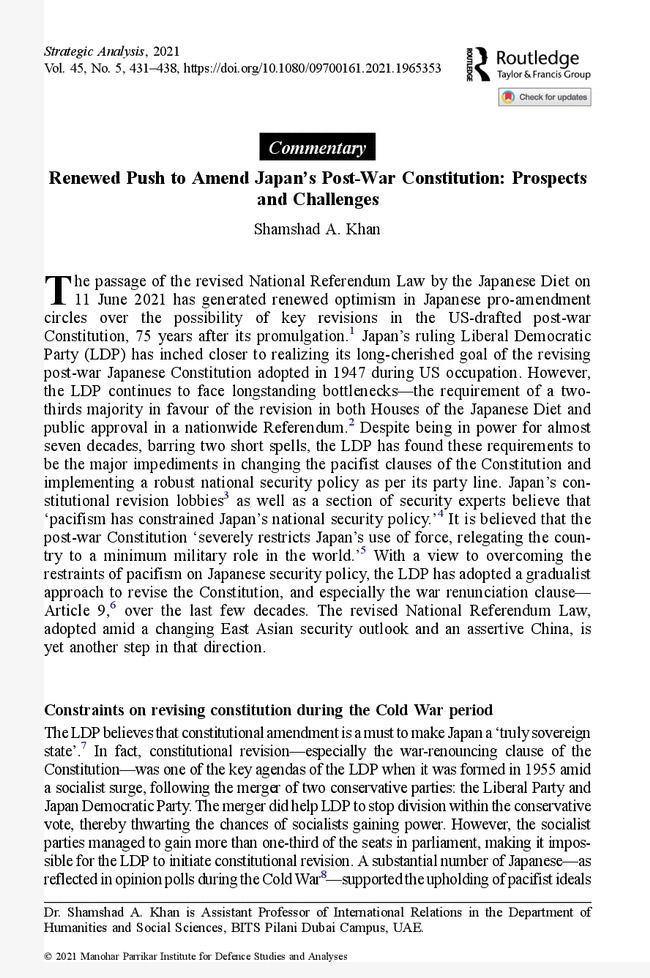Histories and Memories of the Liberation War: Saranarthis in Tripura
In the twentieth century, South Asia experienced mass migrations of millions of insecure homeless people twice: it witnessed the Partition-refugees from 1947 and saranarthis during the liberation war of 1971. The Indian State treated the first category as ‘citizen-refugees’, whereas the saranarthis were like temporary shelter-seekers. Among the Northeastern states, Tripura played the most crucial role in providing them with all essential supports.
- Anindita Ghoshal |
- November 2021 |
- Strategic Analysis






